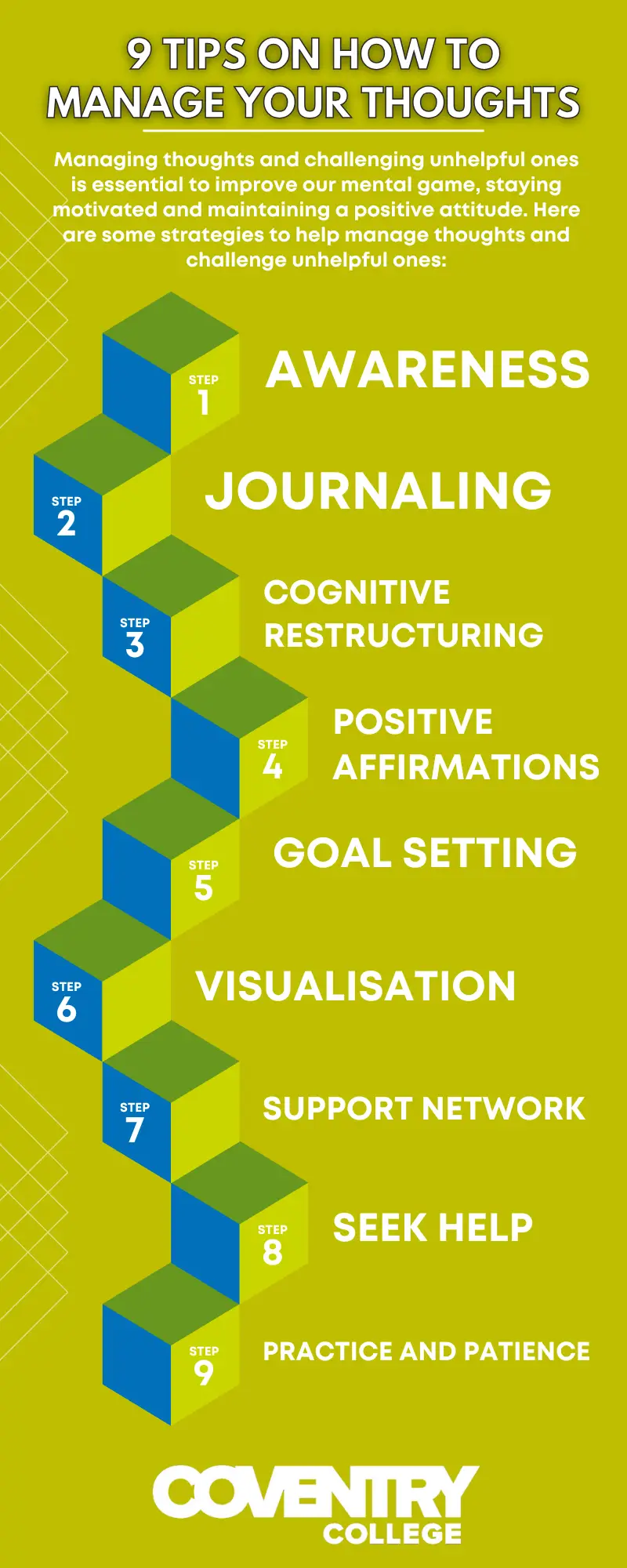
Managing thoughts and challenging unhelpful thoughts is essential for everyone to improve their mental game, stay motivated, and maintain a positive attitude. Here are some strategies to help manage thoughts and challenge unhelpful ones:
Awareness: Begin by being aware of your thoughts, both positive and negative. Pay attention to the self-talk going on in your mind and try to identify any recurring unhelpful thoughts. Writing them down can help you to ‘get them out’.
Journaling: Keep a journal to record your thoughts, feelings, and emotions on a regular basis. This will help you identify patterns, triggers, and areas you need to work on.
Cognitive restructuring: Challenge and replace unhelpful thoughts with more positive and rational alternatives. Ask yourself if the negative thought is based on evidence, if it’s helpful or detrimental, and what a more balanced perspective might be.
Positive affirmations: Use positive affirmations to boost your self-esteem and counter negative thoughts. Repeat simple phrases like “I am capable,” “I am strong,” and “I can handle this,” to reinforce a positive mindset. You can say this under your breath so nobody else hears you if need be.
Goal setting: Set realistic, achievable goals for yourself, and focus on the process of improvement rather than the outcome. This will help keep you motivated and focused on the present moment. Write your goals down so you can keep reminding yourself of them.
Visualisation: Visualise yourself successfully performing skills, overcoming challenges, and achieving your goals. This can help you build confidence and reinforce positive thoughts.
Support network: Surround yourself with supportive, trusted, friends, family and colleagues who can help you stay positive and offer constructive feedback.
Professional help: If you find that your negative thoughts are overwhelming or affecting your daily life and performance, consider seeking professional help from a counsellor or therapist or the College Wellbeing Coaches.
Practice and patience: Developing a strong mental game takes time and practice. Be patient with yourself and recognise that progress may be slow, but with consistent effort, you can improve your mental skills and become a more resilient individual.
By implementing these strategies you can gradually build a more resilient mindset. Don’t expect perfection; instead, focus on progress and celebrate small victories along the way.


